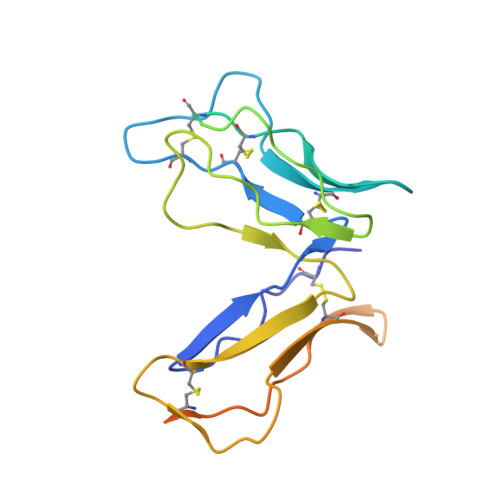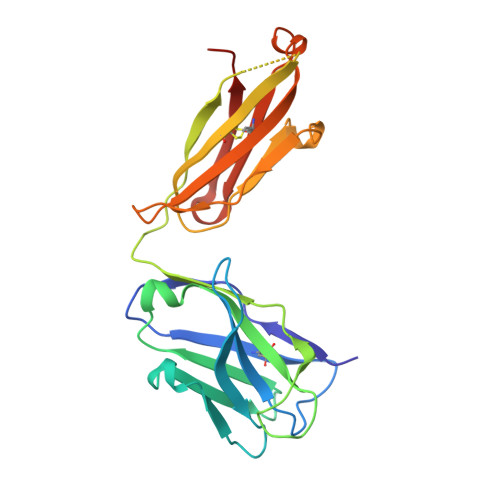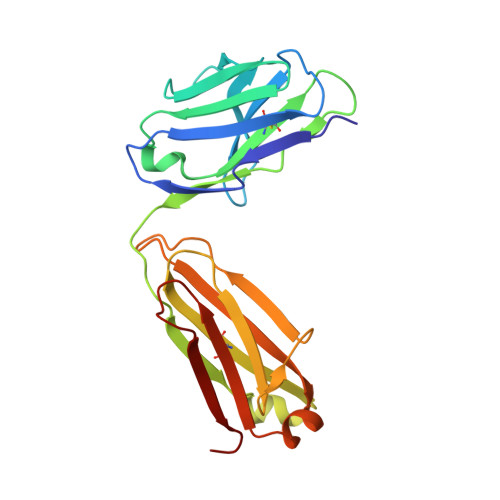CD25-T reg -depleting antibodies preserving IL-2 signaling on effector T cells enhance effector activation and antitumor immunity.
Solomon, I., Amann, M., Goubier, A., Vargas, F.A., Zervas, D., Qing, C., Henry, J.Y., Ghorani, E., Akarca, A.U., Marafioti, T., Sledzinska, A., Sunderland, M.W., Demane, D.F., Clancy, J.R., Georgiou, A., Salimu, J., Merchiers, P., Brown, M.A., Flury, R., Eckmann, J., Murgia, C., Sam, J., Jacobsen, B., Marrer-Berger, E., Boetsch, C., Belli, S., Leibrock, L., Benz, J., Koll, H., Sutmuller, R., Peggs, K.S., Quezada, S.A.(2020) Nat Cancer 1: 1153-1166
- PubMed: 33644766
- DOI: https://doi.org/10.1038/s43018-020-00133-0
- Primary Citation of Related Structures:
6YIO - PubMed Abstract:
Intratumoral regulatory T cell (Treg) abundance associates with diminished anti-tumor immunity and poor prognosis in human cancers. Recent work demonstrates that CD25, the high affinity receptor subunit for IL-2, is a selective target for Treg depletion in mouse and human malignancies; however, anti-human CD25 antibodies have failed to deliver clinical responses against solid tumors due to bystander IL-2 receptor signaling blockade on effector T cells, which limits their anti-tumor activity. Here we demonstrate potent single-agent activity of anti-CD25 antibodies optimized to deplete Tregs whilst preserving IL-2-STAT5 signaling on effector T cells, and demonstrate synergy with immune checkpoint blockade in vivo. Pre-clinical evaluation of an anti-human CD25 (RG6292) antibody with equivalent features demonstrates, in both non-human primates and humanized mouse models, efficient Treg depletion with no overt immune-related toxicities. Our data supports the clinical development of RG6292 and evaluation of novel combination therapies incorporating non-IL-2 blocking anti-CD25 antibodies in clinical studies.
Organizational Affiliation:
Cancer Immunology Unit, Research Department of Haematology, University College London Cancer Institute, London, UK.
















